Addressing the Fears of SMBs Around Adopting AI Tools
Conquer your fears by learning more about how AI tools can help your SMB.

Whenever a new technology is unveiled, people and businesses everywhere are equally excited and concerned about the future (maybe the launch of the World Wide Web rings a bell?).
The inception and evolution of AI is no different. SMBs, in particular, might have concerns about the future of this tech. But don’t sit in those fears! Instead, read on as we uncover SMBs’ biggest fears about AI tools, how to mitigate them, and tips for implementing them daily.
What Are the Biggest Fears that SMBs Have About Adopting AI Tools?
The biggest fears that SMBs have about adopting AI tools are the fears of job losses, security breaches, and high costs.
Fear of Job Losses
Many businesses, large and small, worry that procuring AI tools will mean fewer human jobs to offer and potentially even layoffs. While AI is changing modern work's landscape, experts agree it isn't a replacement for many human tasks. Instead, business leaders can think about the best AI tools as helpful resources that complement employees' jobs.
Fear of Security Breaches
Cyber threats are an ever-present fear of businesses worldwide, and the newness of AI tools can make many companies worried about their security. So, how can SMBs ensure that AI tools are secure?
SMBs can ensure that AI tools are secure by using the right AI security software to detect threats before they happen. This is where AI can shine: It has a treasure trove of information that helps it continually detect certain behaviors particular to cybercriminals and malware. SMBs should ensure they use this software to protect their business data.
Plenty of AI tools also exist that complement a human cybersecurity team.
Fear of High Costs
Many business owners worry that AI tools will be too expensive. This is an understandable concern, as SMBs often don’t have access to as much capital as large corporations do and are already working hard to reduce operational costs and increase profits.
AI tools are a significant investment, but the long-term financial benefits often outweigh the costs: better customer service (leading to more loyal customers), better security (less money spent dealing with security breaches), and better innovation (more competitiveness in the industry).
We’ll dive deeper into these benefits next.
What Are the Benefits of AI Tools for SMBs?
The benefits of AI tools for SMBs include enhanced customer service capabilities, task automation, improved analytics, and better innovation.
Customer Service
With AI marketing tools, stellar customer service is at your fingertips. AI chatbots and virtual assistants are seen increasingly on company websites, and for good reason. They can quickly assist customers and answer their questions, giving customer service teams ample time to help customers with more complex issues. This way, every one of your customers is being assisted in a timely manner.
But you can also enjoy almost-effortless customer service with AI and SMS marketing. Two-way texting can use AI to create more personalized real-time interactions, keeping your employees and customers happy.
Task Automation
In the day-to-day operations of a small or medium-sized business, wouldn’t it be nice to offload certain menial tasks to someone else? That “someone else” can be your chosen AI tool.
You can leverage AI to help in various departments, from finance to human resources to IT. AI marketing tools will make it so your employees can spend less time on repetitive tasks and more time on the job responsibilities that require more complex thought, decision-making, and creativity. The proof is in the AI pudding: 61% of employees believe that AI helps their productivity.
Improved Analytics
These days, AI-powered analytics can be "make it or break it" for any business. With so many companies harnessing this power, it leaves the ones that don't. That's why it's so important to understand the benefit of AI for your business's analytics.
AI tools can produce incredible business analytics using machine learning, natural language processing, deep learning, and neural networks. That's as far in the weeds as we'll get, but basically, AI can analyze a lot of data quickly, helping businesses get a leg up on predicting customer behaviors, identifying trends, and spotting gaps in data.
Better Innovation
AI tools and features constantly evolve, so your company can, too. Use insights from AI analytics to ideate new lines of business, more personalized ways to nurture the customer life cycle, and avenues for saving employee time.
What Are Some Specific Examples of How AI Can Be Used by SMBs?

Here are some specific examples of how AI can be used by SMBs:
- Human resources: Automate tasks like payroll, benefits, and more with the help of AI. HR departments can even use AI writing tools, like ChatGPT, to help write job roles, job postings, and emails. Learn how to create the best AI prompts to get the best output.
- Marketing: AI marketing tools, like SMS text automation, online virtual assistants, website chatbots, and AI writing tools, can help to provide a seamless customer experience. You can send SMS reminders to clients for appointments, reservations, and more while providing a way to chat for the user to ask questions or learn more. You can also brainstorm more creative campaigns with the help of AI image prompts. You can even use AI prompts to generate marketing texts, emails, product copy, and more.
- Finance/accounting: Let AI tools create expense sheets, manage fraudulent activity, and overall reduce the number of errors in financial reports.
What Are Some of the Challenges of Adopting AI Tools?
The challenges of adopting AI tools for SMBs involves lack of knowledge, resources, and trust. So, how can SMBs overcome these challenges to unlock the potential business boost that AI can bring?
It all starts with learning more about AI (you’re in the right place!). Gather as much information as you can about the best AI tools for your daily business needs. Do you want inventory management, or do you primarily need AI security tools? Always assess the business need first.
Then, research AI software providers to learn about cost, training needs, and other important information. You can use this info to help your workforce onboard and learn new skills if needed. You might even need to recruit employees for your small business who are trained in this type of software to ensure that you have the right resources.
Finally, you’ll only be able to trust AI tools once you use them. Learn as you go. Figure out what works and what doesn’t. Be flexible and pivot to something new when needed.
What Are Some Resources that SMBs Can Use to Learn More About AI Tools?
There are tons of resources that SMBs can use to learn more about AI tools—from specific software guides to overarching explanations of how certain AI features work.
But EZ Texting also does deep dives on AI topics and trends, which SMBs can reference when they need to learn more. We’ve hand-picked some helpful articles:
How To Find the Right AI Tools for Business Needs
Adoption of AI tools can be overwhelming to some SMBs. From automation and writing tools to predictive analytics features, it can be difficult to know where to start! In your search for the best AI tools, keep the following in mind:

- Your goals: Identify the need and be specific. The business goal should inform what types of AI tools you implement.
- Capabilities and requirements: What exactly can the tool do, what are the benefits, and how can it help your company improve its day-to-day operations? Make sure you also fully understand what requirements it has in terms of data, integrations, training, and so on.
- Security: Security and privacy are valid concerns of SMBs, so make sure that you understand how the AI tool you’re researching will help mitigate these issues.
- Cost and ROI: Get a full breakdown of how much the tool will cost. You might be wondering, “How can SMBs measure the ROI of AI tools?” SMBs can measure the ROI of AI tools by subtracting the outcome (productivity, time savings, even overall cost savings) from the cost of the tool. Do some preliminary forecasting to get an idea of what your ROI could be.
- Reviews: Always read reviews of the tool you’re interested in to see if other SMBs have found it helpful for their business. This is also a great way to learn about the AI tool’s customer support.
What Are the Future Trends in AI for SMBs?
As AI technology evolves, so do the future trends in AI for SMBs. With 35% of businesses already adopting this tech, all organizations, no matter their size, should continually research new tools, advancements, and best practices in the AI world to stay competitive.
The future will likely require SMBs to
- Adopt customer service chatbots, virtual assistants, and personalized two-way texting to enhance the customer experience.
- Assess current content marketing strategies, due to new tools like Google’s search generative AI.
- Hire more AI experts to help with employee training and tool management and maintenance.
We can’t predict the future, but we do know that AI is changing the business game. Make sure your SMB is prepared to adopt the best AI tools to help reduce costs, improve security and employee productivity, and boost innovation.
Contact us today for more information on AI for text marketing, and to learn more about text marketing to grow your business. Happy texting!
FAQs
AI tools aren’t too expensive for SMBs, especially if you take into account the benefits of AI. While AI can be a large upfront investment for any small business, remember to think about the long-term advantages.
SMBs can train their employees on how to use AI tools by, first, looping them into the business need and the potential solution. Getting employee buy-in is important to ensure that everyone is dedicated to learning the new tool. Then, set aside time to train, whether with the tool’s customer support demos or an in-house expert. Have regular check-ins to discuss best practices, process improvements, new desired outcomes, and more.
SMBs can find the right AI tools for their needs by identifying their goals; understanding the tool’s capabilities and requirements, security posture, and cost; and reading reviews.
Some best practices for implementing AI tools in SMBs include making sure the business need/goal is identified, researching cost and potential training needs for employees, learning as you go and pivoting when necessary, and measuring the ROI.
See other resources related to:
